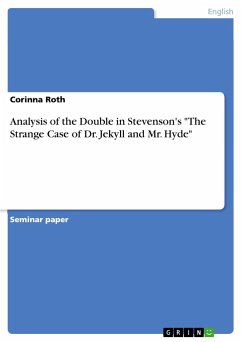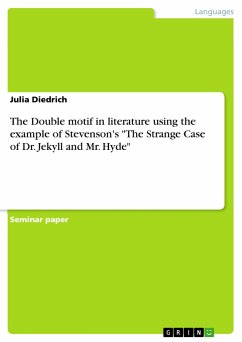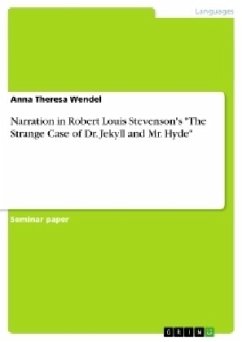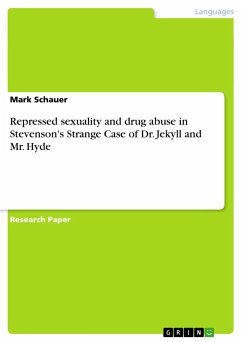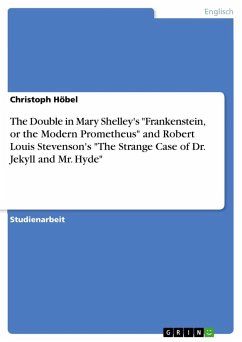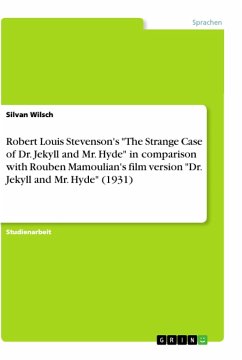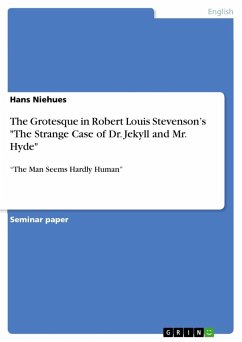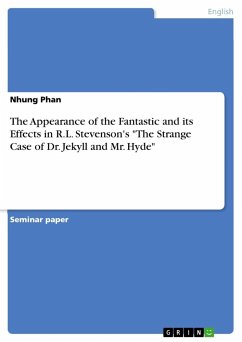Seminar paper from the year 2006 in the subject English Language and Literature Studies - Literature, grade: 1,7, Technical University of Chemnitz, course: Hauptseminar: 19th-Century Horror: Frankenstein, Dracula, Jekyll & Hyde, language: English, abstract: Robert Louis Stevenson's The Strange Case of Dr. Jekyll and Mr. Hyde (1886) is regarded as one of the most famous of all stories relating to doubles. The term Doppelgänger, coined by Jean-Paul Richter in 1796, was hallowed by the Romantic Movement and became particularly popular in the 19th century caused by social upheavals and the consequences of the industrial revolution (cf. Fernandez Bravo 1992:343, 366). Beside the Doppelgänger motif, Stevenson's writing reflects to a great degree the circumstances of the Victorian age. On the one hand, the 1880s were the time of the development of sciences and psychology. On the other hand, the life was influenced by the established religion raising morality to the highest norm and demanding repression of desires and sexuality. Resulting from this, "a split within the self" was realized not only by authors but by the whole society (op. cit.:365). Consequently, the "Freudian concept of the split personality appeared in literature before the actual theory itself was proposed" (ibid.). Doppelgänger as well as split personalities became a common motif and were "used to explore issues of identity, sexuality and morality" (Bell 1992:176). According to Stevenson's wife, one of the most important influences was "another strange case of 'multiple personality'" by which Stevenson was "deeply impressed" (Showalter 2000:190). While he was writing Jekyll and Hyde, the author read in the Archives de Neurologie, a French journal on sub-consciousness, the case of Louis V., who was a male hysteric that "underwent a startling metamorphosis" beginning in his adolescence (ibid., cf. ibid.). All these facts in addition to Stevenson's "passionate aim 'to find a body, a vehicle for that strong sense of man's double being' which he had felt as a student in Edinburgh when he dreamed of leading 'a double life - one of the day, one of the night'" may have been his inspirations which culminated in the writing of the novel (Stevenson quoted in op. cit.:191).
Hinweis: Dieser Artikel kann nur an eine deutsche Lieferadresse ausgeliefert werden.
Hinweis: Dieser Artikel kann nur an eine deutsche Lieferadresse ausgeliefert werden.

